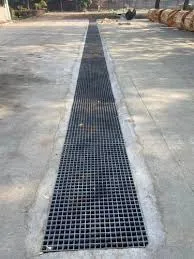
-
 Afrikaans
Afrikaans -
 Albanian
Albanian -
 Amharic
Amharic -
 Arabic
Arabic -
 Armenian
Armenian -
 Azerbaijani
Azerbaijani -
 Basque
Basque -
 Belarusian
Belarusian -
 Bengali
Bengali -
 Bosnian
Bosnian -
 Bulgarian
Bulgarian -
 Catalan
Catalan -
 Cebuano
Cebuano -
 China
China -
 China (Taiwan)
China (Taiwan) -
 Corsican
Corsican -
 Croatian
Croatian -
 Czech
Czech -
 Danish
Danish -
 Dutch
Dutch -
 English
English -
 Esperanto
Esperanto -
 Estonian
Estonian -
 Finnish
Finnish -
 French
French -
 Frisian
Frisian -
 Galician
Galician -
 Georgian
Georgian -
 German
German -
 Greek
Greek -
 Gujarati
Gujarati -
 Haitian Creole
Haitian Creole -
 hausa
hausa -
 hawaiian
hawaiian -
 Hebrew
Hebrew -
 Hindi
Hindi -
 Miao
Miao -
 Hungarian
Hungarian -
 Icelandic
Icelandic -
 igbo
igbo -
 Indonesian
Indonesian -
 irish
irish -
 Italian
Italian -
 Japanese
Japanese -
 Javanese
Javanese -
 Kannada
Kannada -
 kazakh
kazakh -
 Khmer
Khmer -
 Rwandese
Rwandese -
 Korean
Korean -
 Kurdish
Kurdish -
 Kyrgyz
Kyrgyz -
 Lao
Lao -
 Latin
Latin -
 Latvian
Latvian -
 Lithuanian
Lithuanian -
 Luxembourgish
Luxembourgish -
 Macedonian
Macedonian -
 Malgashi
Malgashi -
 Malay
Malay -
 Malayalam
Malayalam -
 Maltese
Maltese -
 Maori
Maori -
 Marathi
Marathi -
 Mongolian
Mongolian -
 Myanmar
Myanmar -
 Nepali
Nepali -
 Norwegian
Norwegian -
 Norwegian
Norwegian -
 Occitan
Occitan -
 Pashto
Pashto -
 Persian
Persian -
 Polish
Polish -
 Portuguese
Portuguese -
 Punjabi
Punjabi -
 Romanian
Romanian -
 Russian
Russian -
 Samoan
Samoan -
 Scottish Gaelic
Scottish Gaelic -
 Serbian
Serbian -
 Sesotho
Sesotho -
 Shona
Shona -
 Sindhi
Sindhi -
 Sinhala
Sinhala -
 Slovak
Slovak -
 Slovenian
Slovenian -
 Somali
Somali -
 Spanish
Spanish -
 Sundanese
Sundanese -
 Swahili
Swahili -
 Swedish
Swedish -
 Tagalog
Tagalog -
 Tajik
Tajik -
 Tamil
Tamil -
 Tatar
Tatar -
 Telugu
Telugu -
 Thai
Thai -
 Turkish
Turkish -
 Turkmen
Turkmen -
 Ukrainian
Ukrainian -
 Urdu
Urdu -
 Uighur
Uighur -
 Uzbek
Uzbek -
 Vietnamese
Vietnamese -
 Welsh
Welsh -
 Bantu
Bantu -
 Yiddish
Yiddish -
 Yoruba
Yoruba -
 Zulu
Zulu
frp customized product
Exploring the World of FRP Customized Products
FRP, or Fiber Reinforced Polymer, is a composite material that has gained significant attention in various industries due to its remarkable strength-to-weight ratio and corrosion resistance. As technology advances and demands for specialized solutions increase, FRP customized products have emerged as a key player in meeting specific needs across diverse applications. This article delves into the significance of FRP customized products, their advantages, and various applications in today's marketplace.
The Importance of Customization
Customization in the realm of FRP products allows manufacturers to tailor their offerings to meet unique specifications and requirements. With the ability to adjust parameters such as dimensions, shapes, colors, and mechanical properties, businesses can design components that perfectly fit their operational needs. This flexibility not only enhances performance but also contributes to greater efficiency and cost-effectiveness.
For instance, industries such as construction, automotive, aerospace, and marine are increasingly leaning towards FRP solutions that are tailored to their specific operational requirements. In the construction sector, customized FRP products can be designed to enhance the structural integrity of buildings, while in the automotive industry, they can be tailored to improve fuel efficiency and reduce vehicle weight.
Advantages of FRP Customized Products
1. High Strength-to-Weight Ratio One of the most significant benefits of FRP materials is their exceptional strength combined with lightweight properties. This makes them ideal for applications where weight is a concern, such as in aerospace or automotive sectors.
2. Corrosion Resistance FRP demonstrates excellent resistance to a variety of corrosive agents, including chemicals, saltwater, and moisture. Customized FRP products can be engineered to meet specific environmental challenges, thus extending their service life significantly compared to traditional materials like steel or aluminum.
3. Design Flexibility The manufacturing process of FRP allows for complex shape creation without compromising structural integrity. This flexibility in design enables industries to innovate and create more efficient and aesthetically pleasing products.
frp customized product

4. Reduced Maintenance Due to their durability and resistance to various environmental factors, FRP customized products require less maintenance over time. This not only cuts down on maintenance costs but also minimizes downtime for businesses.
5. Sustainability With growing environmental concerns, the manufacturing and use of FRP materials have been evolving towards more sustainable practices. Custom FRP products can be designed to be recyclable, thus reducing the overall ecological footprint.
Varied Applications
FRP customized products can be found in numerous industries. In the construction sector, they are increasingly used for beams, columns, and reinforcement bars, where they add strength without adding significant weight. In the marine industry, FRP can be customized for boat hulls and components that require high corrosion resistance and low weight.
Aerospace companies benefit from customized FRP in making lightweight yet durable fuselages and components that enhance fuel efficiency. Wind energy is another area where custom FRP products play a vital role; turbine blades are designed to maximize efficiency and withstand harsh outdoor conditions.
Beyond these industries, FRP customization reaches into consumer goods with products such as sporting equipment, where personalized performance characteristics can enhance user experience. The electrical industry utilizes bespoke FRP enclosures that are both lightweight and resistant to environmental challenges.
Conclusion
The realm of FRP customized products is vast and filled with opportunities across a multitude of sectors. As industries continue to seek innovative solutions to meet their operational demands, the customization of FRP materials stands out as a forward-thinking approach that aligns with both performance and sustainability goals. By leveraging the unique properties of FRP, businesses can optimize their designs, ensure longevity, and foster an environment of continuous innovation. As we move forward, the importance and prevalence of FRP customized products are bound to grow, making it an exciting area for manufacturers and consumers alike.









